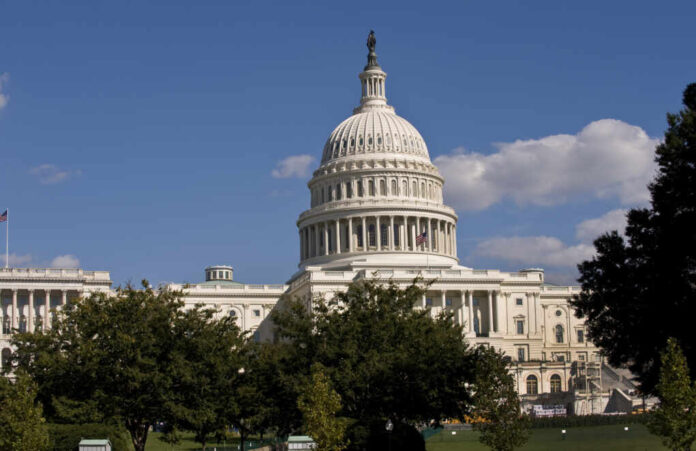
The U.S. House of Representatives is poised to vote on the Antisemitism Awareness Act of 2023 next week as universities across the nation witness escalating anti-Israel and anti-Jewish sentiments. The bill, introduced by Rep. Mike Lawler (R-NY), comes in response to heightened rhetoric and protests particularly prominent at elite schools like Columbia University.
In a Monday press conference at Columbia, Lawler directly challenged Columbia President Minouche Shafik, saying it is time for her “to resign in disgrace.” He added, “She has lost control of this campus, she has no intention of ensuring the safety and well-being of every student.”
Rep. Anthony D’Esposito (R-NY) joined Lawler on Monday, where he said the ongoing unrest at the Ivy League school is not simply an attack on Israel or Jews — “it’s an attack on democracy.” He added, “We are here today to make it very clear.”
The House of Representatives is gearing up to vote on the Antisemitism Awareness Act next week, due to escalating tensions surrounding anti-Israel and anti-Jewish sentiments on college campuses. https://t.co/Et99veURnL https://t.co/PvhVVKP69g
— NEWSMAX (@NEWSMAX) April 26, 2024
Scheduled for a preliminary discussion by the Rules Committee on April 29, the legislation aims to ensure that the Department of Education adopts the International Holocaust Remembrance Alliance’s definition of antisemitism for enforcing federal anti-discrimination laws on college campuses. The bill boasts bipartisan support with 42 co-sponsors, including 12 Democrats.
In a separate address at Columbia, House Speaker Mike Johnson (R-LA) criticized President Shafik’s leadership against a backdrop of loud protests and calls for Palestinian liberation. “Enjoy your free speech,” Johnson retorted as protestors tried to drown out his speech.
The legislative push coincides with broader congressional actions, notably a recent $26.38 billion foreign aid package to Israel, which stirred mixed reactions across party lines and exposed Speaker Johnson to potential political risks under the so-called Hastert rule.
The upcoming House vote signals a significant political and social response to what many conservative leaders consider a growing threat on college campuses. This move aligns with broader Republican strategies to assert American support for Israel while addressing domestic issues of antisemitism, which they often link to liberal college environments.
Furthermore, the bipartisan nature of the bill’s support suggests a shared concern across the aisle about the rise of antisemitic incidents in educational institutions. However, the emphasis on legislation over dialogue with university administrations may indicate a preference for federal intervention in campus affairs. This stance could stir debates about academic freedom and the role of government in educational settings.
As this bill moves forward, it will likely catalyze discussions on balancing free speech with the need to protect students from violence and discrimination. The outcome of this vote and the subsequent implementation of the law will be a critical test of America’s resolve to combat antisemitism while upholding its foundational principles of freedom and equality.

























